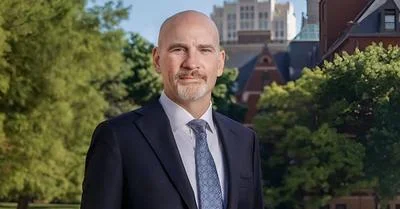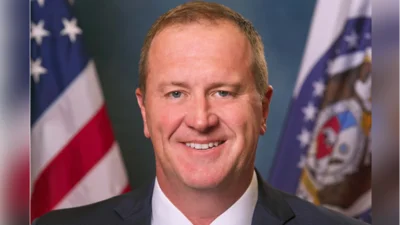Daniel P. Mehan, President and CEO | Missouri Chamber of Commerce and Industry
Daniel P. Mehan, President and CEO | Missouri Chamber of Commerce and Industry
Missouri businesses are preparing for changes to paid sick leave requirements following the passage of House Bill 567 (HB 567), which repeals the Earned Paid Sick Time (EPST) provisions established by Proposition A (Prop A). Prop A, passed in November 2024, amended Chapter 290 R.S.Mo. and required employers to provide paid sick time, leading to increased costs and administrative challenges for many businesses.
According to the Missouri Chamber of Commerce & Industry, some businesses faced significant operational adjustments due to Prop A, including overhauling workplace policies and reducing staff or hours. "Many businesses had to overhaul workplace policies, reduce hours or staff – and some even worried about shutting their doors," the Chamber stated. The legislature approved HB 567 in response, sending it to Governor Mike Kehoe on May 30. The Governor signed the bill on July 10, with the repeal set to take effect on August 28, 2025.
Until that date, employers must continue complying with Prop A’s requirements regarding accrual, notice, and usage of paid sick time. There is currently no official guidance on how unused EPST should be handled after the repeal takes effect. The Missouri Chamber recommends that businesses assess their options using an “EPST Sliding Scale of Risk” when determining how to treat accrued but unused sick time.
Under current rules, employees can carry over up to 80 hours of EPST after a year or may receive a payout up to that amount at the end of each period before new time is frontloaded. However, there is no requirement under Prop A for employers to pay out unused EPST when an employee leaves their job. "Prop A does not require employers to pay out unused EPST when an employee leaves the company, regardless of whether the time was accrued or frontloaded," according to the Chamber.
Employers will be able to change their leave policies after August 28 but are advised to consider both risk factors and any self-imposed requirements. Notices related to Prop A can also be removed once the repeal is effective; however, written notification should be provided to employees explaining how accrued EPST will be managed.
The Missouri Chamber has made sample communications available for notifying employees about these changes but urges companies to consult legal counsel before distributing such notices. "Please see page 4 of the FAQ documentfor the Missouri Chamber’s suggested communications outline. However, as with any issue affecting your business, please consult with your legal counsel before sending employee notifications or using Prop A-related sample language."
There is uncertainty about potential legal claims related to violations of Prop A after its repeal. Employers are required by law to keep compliance records for at least three years—until August 28, 2028—in case of future disputes.
While HB 567 repeals several aspects tied to minimum wage increases under Prop A—specifically removing automatic adjustments based on inflation—the scheduled increase in minimum wage remains in place. As outlined by state officials and covered by the Missouri Department of Labor, starting January 1, 2026, Missouri's minimum wage will rise to $15 per hour; further automatic adjustments linked to inflation have been eliminated by HB 567.
Looking ahead, advocates are working toward placing a similar paid sick leave measure into the Missouri Constitution via a ballot initiative in 2026—a move that would make future legislative changes more difficult if successful. Businesses considering whether they should maintain existing compliance practices until then are encouraged by the Chamber: "This is a business decision...some businesses may decide to keep their Prop A policies in place."
The Missouri Chamber continues efforts aimed at informing voters about potential impacts from such constitutional amendments and encourages those interested in participating or learning more about these initiatives to visit the Secretary of State’s Initiative & Referendum Petitions page.
For additional information or specific questions regarding these changes and best practices during this transition period, employers are advised either contact the Missouri Chamber directly or seek guidance from legal counsel.
This information serves general purposes only and does not constitute legal advice.





 Alerts Sign-up
Alerts Sign-up